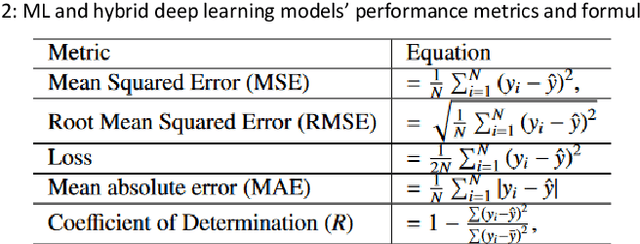Nicole T. Vargas
Predicting the Stay Length of Patients in Hospitals using Convolutional Gated Recurrent Deep Learning Model
Sep 26, 2024



Abstract:Predicting hospital length of stay (LoS) stands as a critical factor in shaping public health strategies. This data serves as a cornerstone for governments to discern trends, patterns, and avenues for enhancing healthcare delivery. In this study, we introduce a robust hybrid deep learning model, a combination of Multi-layer Convolutional (CNNs) deep learning, Gated Recurrent Units (GRU), and Dense neural networks, that outperforms 11 conventional and state-of-the-art Machine Learning (ML) and Deep Learning (DL) methodologies in accurately forecasting inpatient hospital stay duration. Our investigation delves into the implementation of this hybrid model, scrutinising variables like geographic indicators tied to caregiving institutions, demographic markers encompassing patient ethnicity, race, and age, as well as medical attributes such as the CCS diagnosis code, APR DRG code, illness severity metrics, and hospital stay duration. Statistical evaluations reveal the pinnacle LoS accuracy achieved by our proposed model (CNN-GRU-DNN), which averages at 89% across a 10-fold cross-validation test, surpassing LSTM, BiLSTM, GRU, and Convolutional Neural Networks (CNNs) by 19%, 18.2%, 18.6%, and 7%, respectively. Accurate LoS predictions not only empower hospitals to optimise resource allocation and curb expenses associated with prolonged stays but also pave the way for novel strategies in hospital stay management. This avenue holds promise for catalysing advancements in healthcare research and innovation, inspiring a new era of precision-driven healthcare practices.
 Add to Chrome
Add to Chrome Add to Firefox
Add to Firefox Add to Edge
Add to Edge